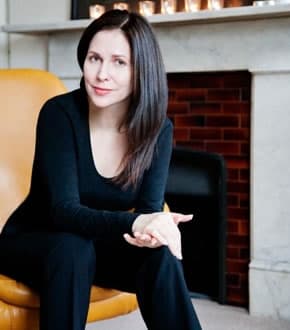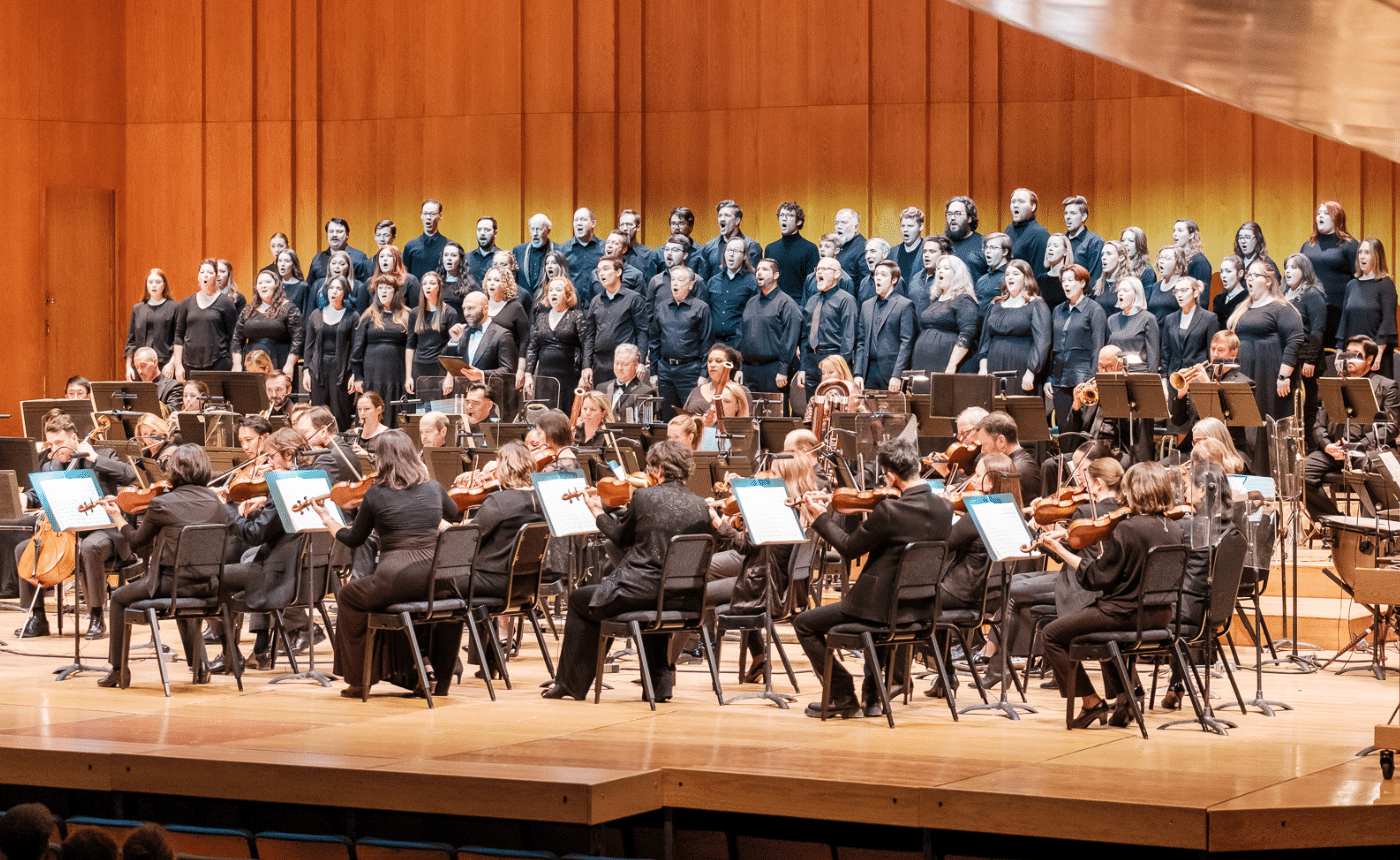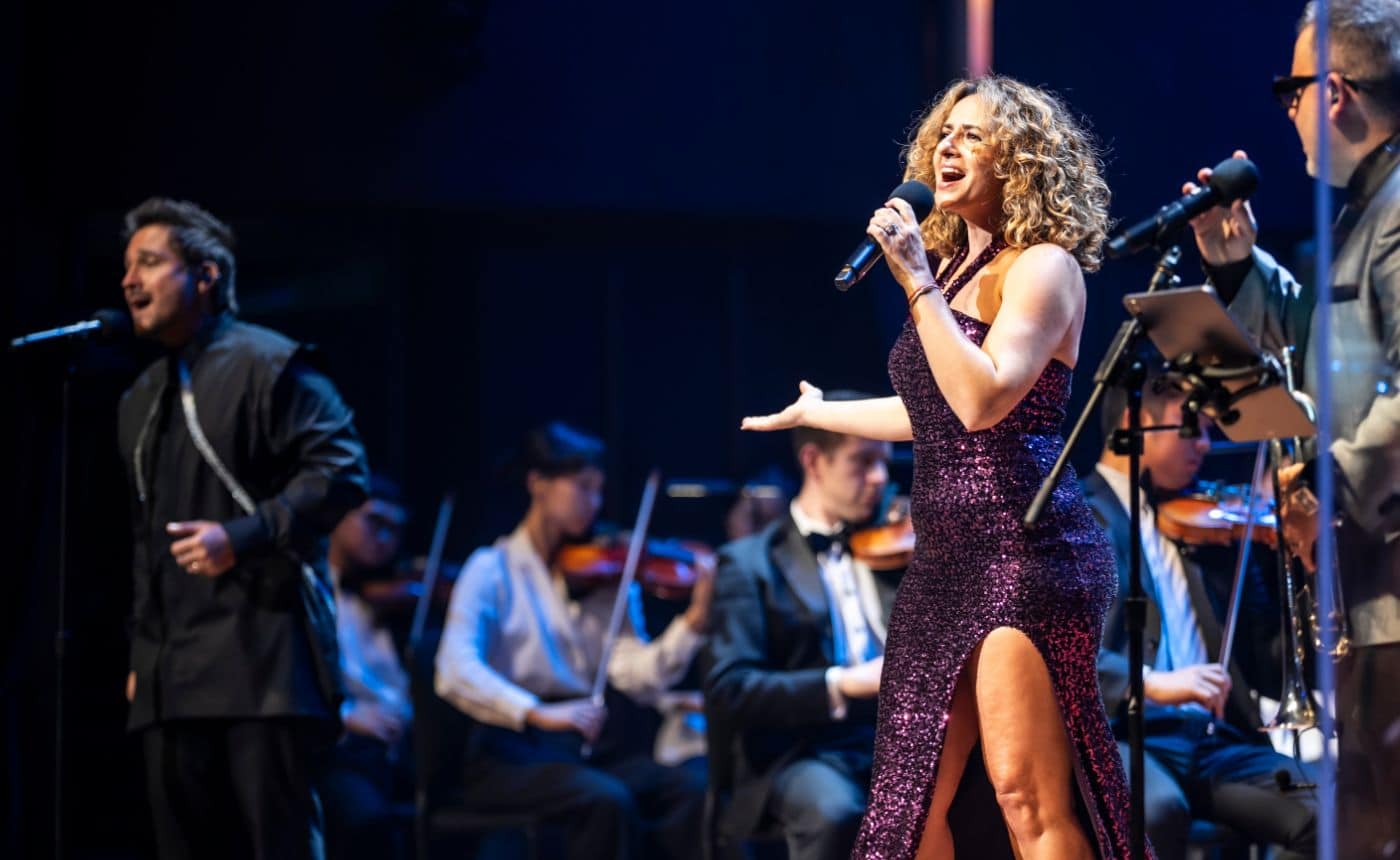ARLENE SIERRA: Aquilo
by Jeff Counts
Duration: 10 minutes.
THE COMPOSER – ARLENE SIERRA (b. 1970) – American Composer Arlene Sierra lives in London and teaches at Cardiff University. Though she began piano lessons at age five, Sierra came to instrumental composing by way of an early interest in electronic music. Synthesized sound provided an exciting measure of freedom from the strictures of traditional notation, but she eventually began to crave the spontaneity of live, human performance. Sierra has defined her compositional voice as a drive to capture “drama, momentum, transition, color—often determined by mechanisms of conflict, competition, and strategy” and believes her explorations in electronica “inform some of the layering and shifts of density” in her instrumental work.

THE HISTORY – Sierra’s own program note on the genesis of Aquilo, her first work for orchestra, speaks of influences both literary and natural. “Aquilo,” she writes, “is a classical name for the Northeast wind as designated by the ancient Roman architect Vitruvius in his Ten Books on Architecture. Vitruvius writes of the theory of winds beginning from heat and moisture, stating this is proven by experiments with aeolipiles: bronze spheres filled with water through a tiny opening. When the aeolipile was heated, a rush of steam would escape, convincing the ancients that winds had similar origins. Vitruvius elaborates upon the theory with his idea that there are eight winds with flow over the expanse of a disc-shaped Earth. The work begins as an aural aeolipile, with musical representations of fire and water mixing to create a rush of air. This rush of air is the wind Aquilo, heard as a melody which develops within a large aural space. It is later joined by three others and the four gather momentum until there is a powerful ‘directional shift,’ introducing four new melodic lines all accumulating energy and complexity as they move in space. After the eight melodic ‘winds’ make their individuality ‘felt,’ the original melody returns. Aquilo travels until the environment breaks down to elemental components, returning to the original spark of its creation.” Sierra, in an interview with BBC Radio 3 about Aquilo, also had this to add about her interest in Vitruvius: “Well, part of what makes Vitruvius fun reading, is that he has all these digressions and theories about how the world works that are absolutely wrong.” She found his idea, though incorrect, that the oceans possess some faraway weather-producing cauldrons to be fascinating. To her, the notion of something so “huge and distant, sort of boiling and bubbling, just seemed like a perfect metaphor for what an orchestra can do.” Aquilo won the prestigious Takemitsu Prize in 2001.
THE WORLD – Elsewhere in 2001, Calcutta restored its name to Kolkata, iTunes and Wikipedia were launched in the US, the Bamiyan Buddhas were destroyed in Afghanistan, and Dennis Tito became the world’s first space tourist, courtesy of the Russian Federal Space Agency.
THE CONNECTION – These performances mark the Utah Symphony debut of Composer-in-Association Arlene Sierra’s Aquilo.











